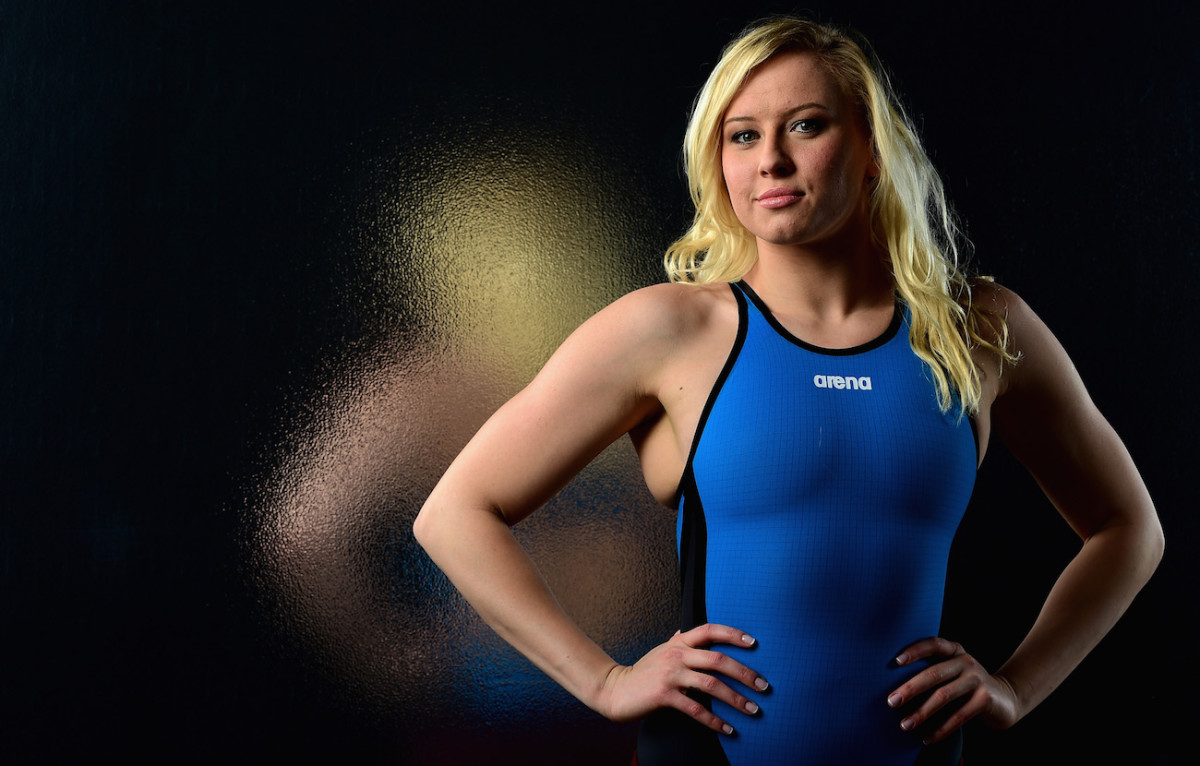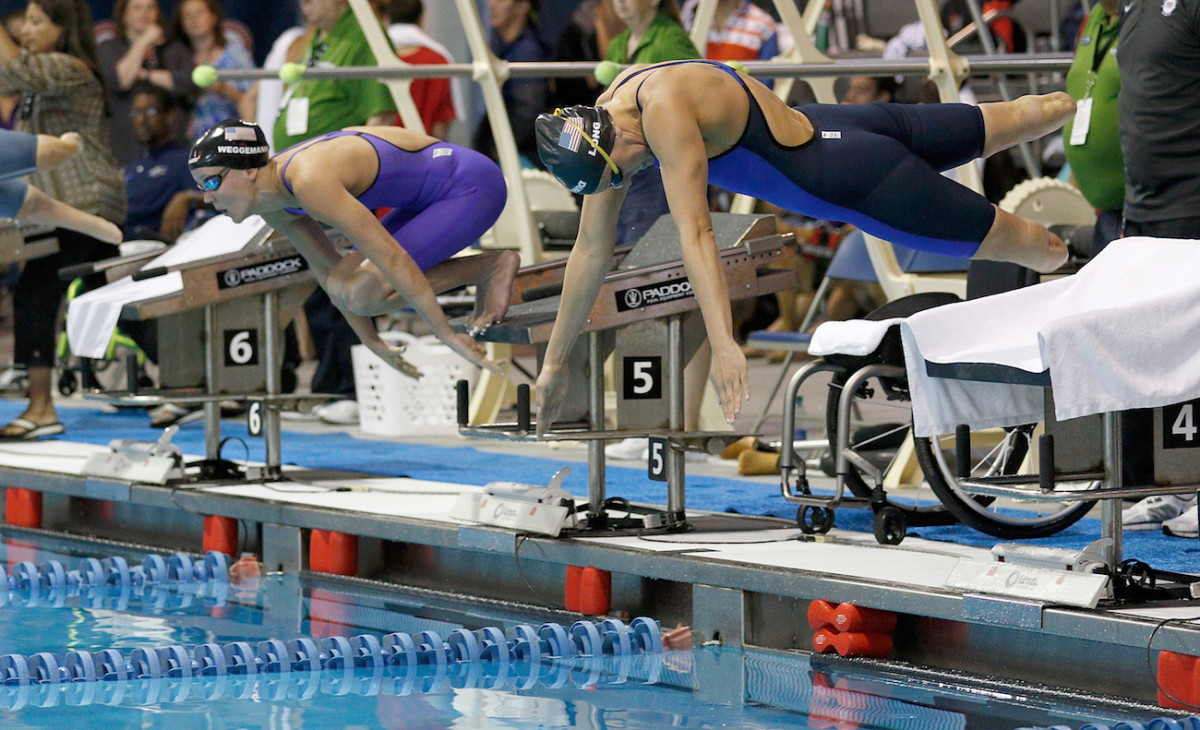Meet Team USA: Jessica Long


Age: 24
Sport: Swimming
As Olympians go, it’s hard to find more successful than Jessica Long. A 12-time gold medalist, Long has dominated Paralympic swimming since she began competing in the Games in 2004. But maybe more impressive is that she swam in her first Paralympic Games as a 12 year old — and she won gold!
Long was born in Siberia and when she was 13 months old adopted by a family who moved her to the United States. She was born with a condition called fibular hemimelia, which affects the length of bones in the legs. That led to both of her legs being amputated below the knees. But that didn’t hold Long back. She was an active kid, and before long excelled in the pool. Now she’s one of the great swimmers — either in the Olympics or Paralympics — and she’s headed to Rio for her fourth Paralympics and a shot at more hardware.
Sports Illustrated Kids spoke with Long at the Airweave booth Olympics Media Day in New York about her preparation for the 2016 Games, the importance of a solid night’s sleep, and how she overcame obstacles to reach the pinnacle of her sport.
What’s it been like preparing for these Olympics?
Oh my goodness it’s been crazy. This is my fourth Paralympic Games and I’m just so excited. Preparation has just been, right now, a lot of the work is done so it’s focusing on the details, whether that’s nutrition or recovery or just getting enough sleep. That’s why I’m so excited to stand here and be a part of Airweave because sleep is really important for me, so it’s been great, yeah.
Is preparing for your fourth Olympics different from the first?
Oh yeah. So when I first went I was 12 years old and I wasn’t expecting to make the team. But that I was just so young, I don’t think I knew the significance of it. Now being a 24-year-old, I don’t feel like I have all this pressure. I’m so used to competing in front of a large crowd. I have a routine down and what’s just left to do is step up and race for Team USA.
Is competing in the Paralympics as a 12-year-old normal?
No, I think I was the youngest to ever go and win a gold medal. So that was pretty crazy. I’m a little competitive so that was part of it.
When you competed at 12, how old were the people you were swimming against?
For my first gold that I won as a 12-year-old, I out-touched the world-record holder from Israel and I think she was in her late 20s. I just remember at one point, when it was her and I neck and neck, and I remember as a 12-year-old saying, “I did not come here to get second.” I ended up touching and beating her by a tenth of a second. That’s pretty crazy to think that that’s what started my career, and here I am years later still swimming.
What does it do for you as a 12-year-old, winning a gold medal in a Paralympic event?
It’s incredible. It’s definitely taught me to be humble and to work hard and to set short- and long-term goals. Records are made to be broken and that’s what makes it so fun. And it’s easy to get to the top. But it’s really hard to stay there. I’m really looking forward to Rio and hopefully defending the gold.
Is Paralympic swimming different at all from able-bodied swimming?
Nope. The only thing is that some of us are missing arms or legs or can’t see. We’re just a little… Para, Paralympic. But it’s incredible, having a gold, silver, and bronze awarded just like the Olympics.

You mentioned sleep is really important. What other parts of your regiment are crucial to stay on top of your game?
Definitely sleep is very important. I feel like I’m always sleeping, whether it’s taking naps because swimmers are constantly up so early to jump in the pool. Nutrition is big too, just staying healthy and having a cheap meal or two. Recovery, which is kind of taking it easy and letting your body… You break it down all week, but just recovery when you can.
What do you do to chill out?
I’m probably always in my bed watching a movie or something. I love hanging out in my bed.
What advice would you give to a young athlete watching at home who might be disabled?
I think my advice would be to really embrace whatever you have. For me, missing both of my legs, all of my life, I was born this way. There are really hard days. I think everyone’s going to have really hard days. But those are the days when you have to press on and not give up. And it’s easier said than done. But I also think finding a sport, something that you love, and have a passion with that sport. For me being an amputee and finding swimming, you know, I swim against girls with legs. I found this drive within me and I just I loved being a part of a team. So I think that’s really important for anyone, any age, with or without a disability, is to be a part of a team.
For people watching at the Olympics at home, why should they tune in to the Paralympics?
Why shouldn’t they?! No, it’s incredible. For me, I’ve been around since 2004 and Paralympics was still very new. It’s really only been the last couple Games that it’s been picking up and I think it’s incredible. I think what’s so unique about a Paralympic athlete, I mean just any athlete, is there’s such a unique story. How can you not fall in love with inspiring stories, not only overcoming the challenges of being an elite athlete and training every single day but the challenges of being an amputee? Or, you know, Brad Snyder, who’s missing his eyesight? There’s so many incredible stories and I think people are going to love the Paralympics being televised in Rio.
Photos: Harry How/Getty Images (profile), Bob Leverone/Getty Images (action)
